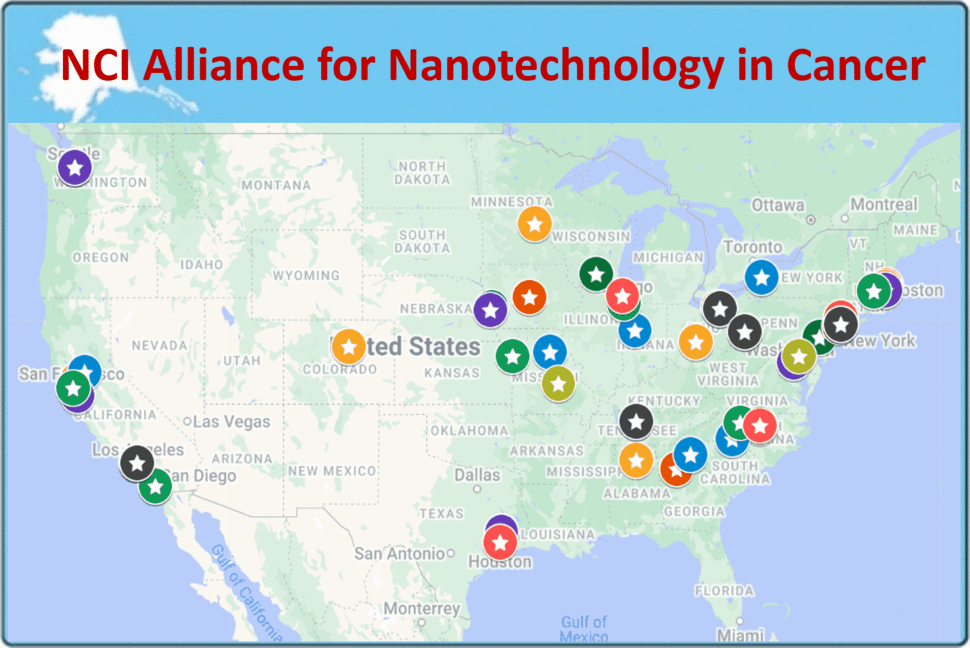NCI Alliance for Nanotechnology in Cancer
The NCI Alliance for Nanotechnology in Cancer, launched in 2004, is engaged in efforts to harness the power of nanotechnology to improve the way we diagnose, treat, and prevent cancer. The Alliance works in concert with other NCI advanced technology initiatives to provide the scientific foundation and team science that is required to transform cancer research and care.
The Alliance program aims to:
- Address major barriers in cancer biology and/or oncology using nanotechnology
- Enable mechanistic studies to expand the fundamental understanding of nanomaterial and/or nano-device interactions with biological systems
- Advance new nanotechnology cancer discoveries and promote their transformation into cancer-relevant applications in clinical practice
- Develop next-generation of cancer researchers in the area of nanotechnology
The Alliance’s programs foster innovation and collaboration among researchers within and between institutions, as well as across scientific disciplines.
Alliance Programs
-
Centers of Cancer Nanotechnology Excellence (CCNEs)
The multi-disciplinary CCNE teams are the main venue for the discovery and tool development toward the application of nanotechnology to clinical oncology. Teams are focused on integrated technology solutions and the aggressive development of these solutions from pre-clinical to clinical application.
-
Innovative Research in Cancer Nanotechnology (IRCNs)
IRCN's enable multidisciplinary, fundamental research in cancer biology and/or oncology through the use of nanotechnology
-
Toward Translation of Nanotechnology Cancer Interventions (TTNCIs)
TTNCI’s enable the translation of nanotechnology-based cancer interventions relying on next-generation nanoparticle formulations and/or nano-devices. The TTNCI initiative encourages applications for advanced pre-clinical research, supporting translation of nanotechnology-based cancer diagnostics and therapeutics.
Alliance Resources
-
Data Sharing
A well-organized, collaborative system of data sharing is critical in the translation of nanotechnology research into commercially viable therapeutics and diagnostics to treat patients.
-
Publications and Presentations
The Nanodelivery Systems and Devices Branch routinely publishes reports, strategic peer-reviewed manuscripts, and subject matter expertise papers relative to our myriad of interdisciplinary backgrounds. These papers are listed on this page.
